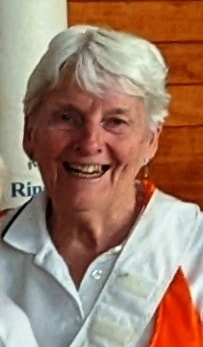A fun and safe way to maintain fitness, we’re always happy to see new players--contact coordinator Marlene Pitts on 0407240943, or come along at 10am Mondays. Players are also asked to advise Marlene if they will be away.
Please note that there will not be a Lifeball session on the Queen's Birthday Public Holiday on Monday 13th June.
Julie McNeill


